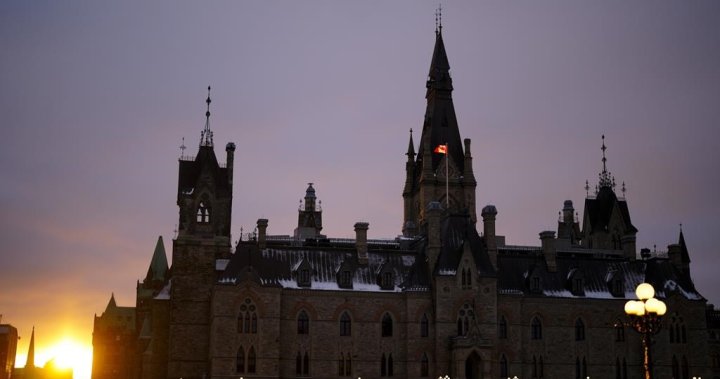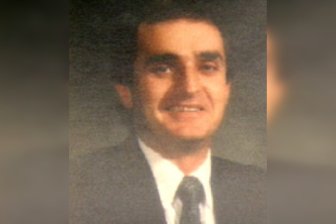The long-awaited public inquiry into foreign interference in Canadian politics is set to begin Monday with hearings on how much information it can, in fact, make public.
Justice Marie-Josée Hogue’s inquiry, facing tight timelines to report on a complex national security issue, is scheduled to hold five days of hearings beginning Jan. 29. The inquiry said the initial hearings will focus on the “challenge” of how to make as much information public, given that much of the evidence will come from top secret national security documents and sources.
It’s one of the key questions facing Hogue’s commission as it begins a months-long probe into allegations that hostile governments — particularly China — have attempted to influence Canadian politics and politicians, including during the 2019 and 2021 federal elections.
“The issue is … dealing with classified information and making it available to the public,” said Wesley Wark, a senior fellow at the Centre for International Governance Innovation (CIGI) and longtime national security researcher.
“It’s really a factual inquiry, the question of the extent and nature of foreign interference, particularly from China, possibly from Russia, in the 2019 and 2021 federal elections.”
The commission has also requested records related to India and allegations of interference in Canada.
It’s also the beginning of another chapter of the saga of foreign intervention in Canadian domestic affairs, which gripped the House of Commons in early 2023 and has launched multiple parallel probes.
Justice Hogue, a judge in the Court of Appeal of Quebec, was appointed by the Liberal government last September after months of negotiations with opposition parties. Her appointment came after the resignation of former governor general David Johnston, who appointed “special rapporteur” on the issue of foreign interference and tasked with determining whether a public inquiry was needed.
Johnston concluded it was not, taking issue with media reporting — including from Global News and the Globe and Mail — on foreign interference that launched the issue into headlines for months. Johnston concluded that the media reports were based on an incomplete picture of intelligence gathered by Canadian spy and law enforcement agencies.

Johnston’s conclusions drew the ire of the opposition Conservatives, who accused the former governor general — appointed to the vice regal role by Stephen Harper — of being too close to Prime Minister Justin Trudeau’s family.
Get the latest National news.
Sent to your email, every day.
His resignation launched months of negotiations behind closed doors between Dominic LeBlanc, the public safety minister, and opposition parties about how to proceed with a public inquiry. The result of those talks was the Hogue inquiry.
What will the inquiry examine?
Hogue’s mandate includes assessing interference by “China, Russia and other foreign states or nonstate actors” to influence the 2019 and 2021 federal elections, which returned minority Liberal governments under Trudeau. That includes both at the national level and in individual electoral districts.
The inquiry, which is completely independent from the government, will also examine the capacity for federal agencies and departments to “detect, deter and counter foreign interference targeting Canada’s democratic processes.” Hogue will be asked to pronounce on how well federal entities produced and shared intelligence, how law enforcement and security agencies protected diaspora communities — groups that have traditionally borne the brunt of foreign influence and intimidation campaigns — and how well both elections were safeguarded from threats.
It would be a tall order for a years-long inquiry. Hogue is expected to produce a final report by the end of the year.
Opposition parties have suggested the tight timelines for the inquiry were animated by a desire to have better safeguards in place before the next federal election, which must be held before the end of 2025. Wark suggests other motives were in play.
“I think that was bogus. That’s pure politics,” Wark said.
“The opposition parties were looking for sources of information and evidence to embarrass the government before an election. They weren’t looking for answers to the complex problem of foreign interference before the next election. … Politics dictated the timeframe.”
Parallel probes into the same problem
Canada’s two national security review bodies, the National Security and Intelligence Committee of Parliamentarians (NSICOP) and the National Security and Intelligence Review Agency (NSIRA), are also probing the issue of foreign interference and the federal government’s response to it.
It’s not publicly known when the two committees will report their findings, but Wark said that it’s rumoured to be in February.
“If there’s anything new to be found out about the 2019 and 2021 elections, I think we’ll find it out from the review bodies, not from the Hogue inquiry,” Wark said.
But that gives the Hogue inquiry an opportunity to build on the review bodies’ work and focus on how best to harden Canada’s defences against foreign interference — whether it be in elections or in attempts to influence and intimidate diaspora communities more generally.
“Essentially, the whole inquiry can define for the public the broad concept of foreign interference. And if it’s going to do that, then it also has a responsibility to dive into the broad concept,” Wark said.
“So what are we talking about? We’re talking about espionage threats. We’re talking about intellectual property theft. We’re talking about research security challenges. We are talking about the intimidation of diaspora communities, dissidents and critics. So we’re talking about a wide canvas of foreign interference problems that need the government’s attention, all of which are, to be honest, much more important than election interference.”
© 2024 Global News, a division of Corus Entertainment Inc.




